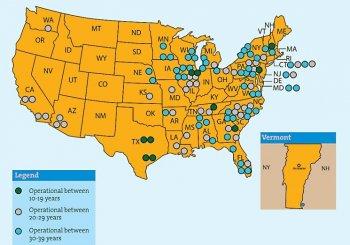Muslims are experiencing increasing discrimination in the United States post 9/11, said Assistant Attorney General Thomas E. Perez, on March 29, in what was the first congressional hearing on the civil rights of Muslim Americans.
“Regrettably, while nearly a decade has passed since 9/11, we continue to see a steady stream of violence and discrimination targeting Muslim, Arab, Sikh, and South-Asian communities. In each city and town where I have met with leaders of these communities, I have been struck by the sense of fear that pervades their lives—fear of violence, of bigotry, and hate,” Perez said.
Perez pointed to several recent incidents of hate crimes against Muslims, most notably the case of a man who pleaded guilty to setting fire to playground equipment at a mosque in Texas.
The hearing came a few weeks after Peter T. King (R-N.Y.) held a congressional hearing on the radicalization of American Muslims, which was largely criticized for further inciting anti-Muslim sentiment in the United States.
The radicalization of Islam, however, is not something for which Muslims should not be blamed, argue many Muslims. There is evidence to suggest that radicalization has indeed grown. Some believe that this was a mere human response to the war waged in Iraq.
Some Arab Muslims who identify with the worldwide community of Arabs feel the American military operation in Iraq was a valid reason for self-defense and for taking up arms.
A recent documentary, “Meeting Resistance,” by journalists Steve Connors and Molly Bingham showed previously nonviolent Iraqis taking up arms in the name of Jihad because they believed their integrity as a nation had been destroyed.
More than 80 percent of these Jihadists were motivated by religion, an Iraqi lecturer of political science at Baghdad University, whose name was not disclosed, said in the documentary.
Many American Muslims fear that focusing on this radicalization and its hypothetical reach into America will incite hate and perpetuate anti-Muslim discrimination.
Anti-Muslim sentiment in the United States is on the rise, as the congressional hearing established.
An example of this rising anti-Muslim sentiment manifested in February when hundreds, including elected U.S. officials, protested outside of an event held by ICNA Relief, an American Muslim relief organization. The group held a dinner in Yorba Linda, Calif., to raise money for homelessness and hunger in the United States.
Protesters screamed, “Go back home,” and “Terrorist,” amidst a background of boos, as Muslim families, including young children, walked into the building.
Challenges have been issued to requests to build mosques. Oklahoma passed legislation saying that Shariah law could not be considered by its courts.
The congressional hearing last night pointed to rapidly increasing discrimination and bullying that Muslim American students face.
“I consistently hear complaints that children face harassment in school, that they are called ‘terrorists’ and told by their peers to ‘go home,’ even though America is their home. ... In fact, harassment of Muslim students is the largest category of religious discrimination matters that our Educational Opportunities Section handles, and this has been consistently true since 9/11,” Perez said in the hearing.
He said that the Department of Justice will protect Muslims in America: “As a nation, we believe strongly and unequivocally in religious freedom, and this belief is embodied in the laws we enforce. Muslim, Arab, Sikh, and South Asian-Americans contribute to our economy, play a vital role in our civic institutions, serve in our armed forces, and work in and with law enforcement to keep our communities safe. The headwinds of intolerance these communities face today are no different from the bigotry confronted by groups throughout our history—by Catholics, by Jews, by newcomers from Ireland and Italy, by Japanese-Americans in the wake of World War II, and by countless others who simply wanted to realize the promise of a free and tolerant nation.”

